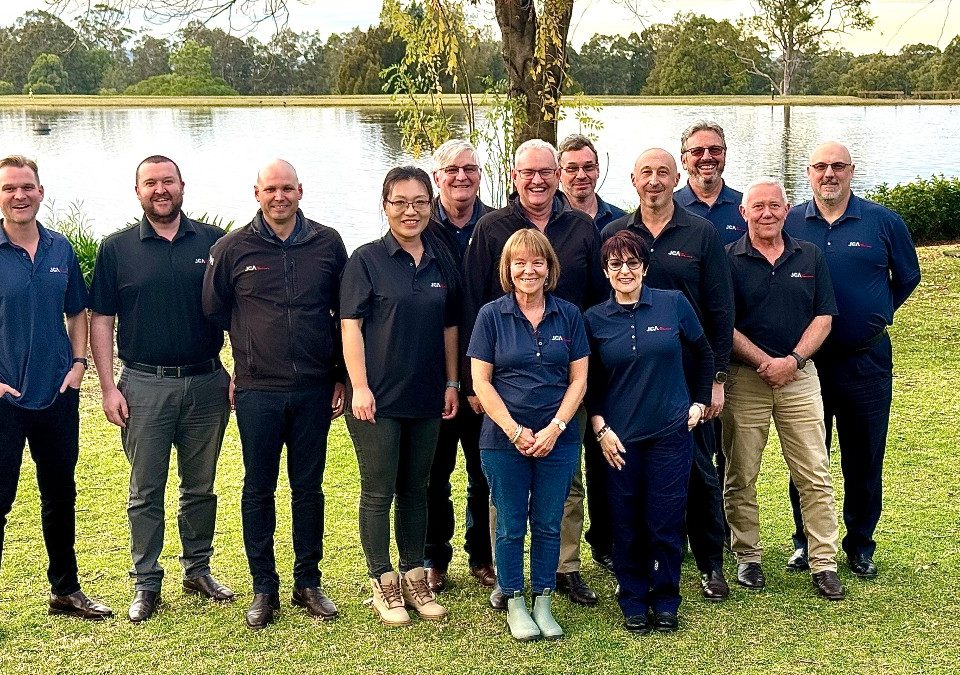Nearly Half of Aussies Want to ‘Level-Down’ Their Careers
What if career success wasn’t about climbing higher, but about living better?
In workplaces across Australia, a quiet shift is underway as people are increasingly opting to ‘level down’ in their careers.
Essentially, ‘levelling down’ is a deliberate move towards roles or work arrangements that prioritise wellbeing, flexibility, and purpose over salary and career growth. What might’ve once been seen as a failure – accepting a lower salary, doing a job you’re overqualified for – now points to a subtle recalibration of priorities. Those with the option to ‘level down’ (more on those who don’t, later) are making a deliberate choice to prioritise sustainable work over the traditional, relentless pursuit of career advancement
In short? We may be witnessing the death of the corporate ladder.
Independent research conducted on behalf of SEEK, has shown that almost half of Australians (49%) have considered levelling down in their careers. A further third have already taken steps toward ‘levelling down’ their careers. The most common form of levelling down is reducing working days or hours, followed by choosing to take on fewer responsibilities in their current role.
49% of Australians have considered levelling-down in their careers.
The reasons for this shift are as different as the individuals making them, though according to SEEK’s research, Aussies who are levelling down do so primarily because they want to create more time for activities outside of work.
Having hit pause during the pandemic, many re-evaluated their priorities, consciously rejecting the ‘hustle culture’ and actively seeking a simpler, less stressful lifestyle. This re-evaluation was often fuelled by the recognition of how years of relentless pressure, the blurring of life-work boundaries, burnout, and constant digital connectivity had left them feeling depleted.
Furthermore, a significant factor driving this shift is the growing prevalence of adverse mental health. Nearly 20 percent of job seekers are deliberately levelling-down due to mental health concerns, acknowledging that they simply don’t have the mental capacity to cope with the demands of their previous or desired career paths.
Transitioning Well co-founder Justine Alter says companies are tightening resources, which is putting added pressure on those in roles that are already pressured with high levels of responsibility.
“People are struggling, the cost of living is high, the pace of life is fast,” says Justine. “When you couple that with job demands and expectations which are often unrealistic, it’s no wonder people are experiencing high levels of stress at the moment.”
For those who can financially afford to reduce hours, they’re trading the boardroom for a role that allows them to breathe, to reclaim their evenings and weekends, and to be around for the people who matter to them.
“Managing people has become more difficult because of the increase in stress in people’s lives as a result of the economic climate, global unrest and an increase in sandwich generations,” says Justine.
However, this pursuit of balance is not accessible to everyone. The economic landscape is also playing a significant role, forcing many into levelling-down out of necessity rather than choice.
Job seekers are facing an incredibly competitive market, where desirable positions vanish quickly, sometimes after just a few days or hundreds of applications. This is reflected in SEEK’s research, which shows almost a third of Aussies levelling down are doing so because they simply “just need a job,” with 22 percent believing the job market is too competitive.

These economic pressures, and the stress that they cause, are amplified for working parents.
It comes as no surprise then, that the groups most willing to level-down are working parents and single parents. This data underscores the need for employers to prioritise both flexible work arrangements and a comprehensive mental health and wellbeing strategy to mitigate the potential loss of highly-skilled workers and maintain overall productivity.
With working parents, the pressure on dual-income families where both are often in managerial roles is proving too much for families to navigate says Justine.
“Middle managers, in particular, are feeling the brunt of leading people through personal and workplace disruption but often on empty tanks whilst navigating their own disruption. The skills needed to lead in 2025 are different, and therefore, those without them are opting to step away- to level down and remove that stress.”
“People’s need for flexibility and balance is calling more than ever before.” – Justine Alter
This focus on flexibility, as a key priority for working parents, is also reflected in the broader job market. Of those who started a new role recently, the top three priorities for deciding to accept said role were salary, flexibility and job location. The most common things Aussies are willing to sacrifice in order to land a new role are professional growth or some degree of salary.
In short, levelling-down isn’t always about taking a pay cut. It might mean moving to a role with less responsibility, but more autonomy. It might involve switching to a career that aligns with a long-held passion, even if it means starting at the bottom. It might simply be about prioritising wellbeing over ambition, choosing a slower pace that allows for more time with family and friends.
For others – and this is a trend we’ve seen since the pandemic – it’s a matter of purpose. The pursuit of career success can feel hollow when it lacks deeper meaning. It’s widely recognised that Generation Y (Millennials) places a significant emphasis on finding purpose and meaning in their careers. Seeking out roles that align with their values, they want to work for organisations that have a positive impact on society and contribute to causes they care about.
While the concept of levelling-down might seem like a by-product of the current economic and social landscape, what we’re actually seeing is a challenge to the traditional narrative of upward mobility. It suggests that success is no longer a linear progression but a dynamic and evolving concept. As work as we know it continues to evolve, this trend will likely gain momentum as more professionals seek a meaningful and sustainable life.
Want to support your team? Discover our life-work wellbeing support
Taking a holistic and evidence-based approach, we create real-world solutions to ensure your business is on the front foot when it comes to supporting your team.
Our practitioner-led work with leaders also ensures that best practice is translated into action, giving people the confidence and capability to support their teams to live and work well.
This research was conducted by market research agency Nature on behalf of SEEK, in November 2024 via an online survey. Responses were gathered from more than 1000 individuals currently in the workforce (either employed or looking for work), aged 18 to 64, and living in Australia.



